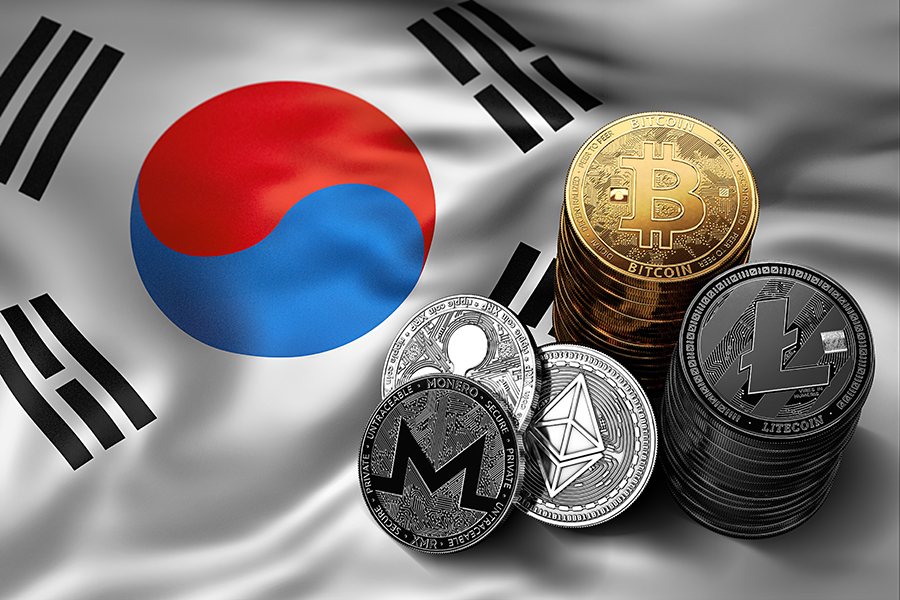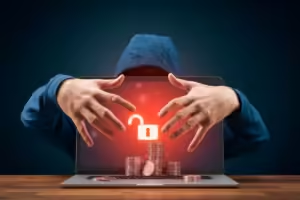South Korea to Regulate Certain NFTs as Cryptocurrencies

Stack of Bitcoin, Ethereum, Litecoin, Ripple and Monero coins on South Korean flag. Situation of Bitcoin and other cryptocurrencies in South Korea concept. 3D Rendering
Quick Take:
- South Korea’s Financial Services Commission (FSC) released new guidelines for regulating NFTs.
- Mass-produced NFTs that are exchangeable will be treated as cryptocurrencies.
- Unique, non-transferable NFTs with minimal economic value will retain their NFT classification.
- New rules are part of South Korea’s broader crypto regulatory framework, effective July 19.
In a significant move towards providing regulatory clarity in the rapidly evolving digital asset landscape, South Korea’s Financial Services Commission (FSC) has unveiled new guidelines for the regulation of non-fungible tokens (NFTs). According to a report by Yonhap news agency, these guidelines mark a pivotal step in defining how certain types of NFTs will be treated under South Korean law, particularly those that resemble cryptocurrencies in their functionality and use.
The guidelines stipulate that the FSC will regulate specific NFTs as regular cryptocurrencies if they lose the unique qualities that traditionally distinguish them from other digital assets. This determination hinges on several factors, including whether the NFTs are mass-produced, exchangeable, fractionalized, or used for payments of goods and services. Essentially, if an NFT behaves like a cryptocurrency, it will be regulated as such.
For example, an NFT collection with around a million issued tokens that can be traded and used as a payment method will be subject to the same regulatory scrutiny as cryptocurrencies. An FSC spokesperson emphasized that each case would be reviewed individually, ensuring that no single standard is used to classify all NFTs as crypto. This case-by-case approach allows for a nuanced assessment, reflecting the diverse and innovative nature of the NFT market.
Conversely, NFTs that are non-transferable and hold minimal economic value will continue to be classified as traditional NFTs. Examples include NFT proofs of transaction or concert tickets, which serve specific purposes and are not designed for trade or broad economic use. This distinction helps to maintain the original ethos of NFTs while acknowledging the market’s evolving landscape.
The FSC’s guidelines also open the possibility of classifying certain NFTs as financial securities if they meet criteria outlined in South Korea’s Capital Markets Act. This could include NFTs representing shares in a company or other investment contracts, which would require additional regulatory oversight to protect investors and maintain market integrity.
This regulatory update comes ahead of the implementation of South Korea’s first comprehensive crypto-focused regulatory framework, set to take effect on July 19. Named the Virtual Asset User Protection Act, this new law aims to eliminate illicit activities in the crypto market, such as insider trading, market manipulation, and fraudulent transactions. The act also imposes stringent requirements on cryptocurrency service providers, mandating that over 80% of user deposits be stored in cold storage to enhance security. Additionally, these providers must enroll in insurance programs to compensate users in the event of security breaches.
The Virtual Asset User Protection Act is part of a broader legislative effort to establish a robust regulatory framework for the crypto industry in South Korea. The second phase of this initiative, currently under development, will focus on standardizing the issuance of crypto tokens and ensuring transparent information disclosure for investors. This comprehensive approach aims to foster a secure and transparent crypto market, encouraging innovation while safeguarding investor interests.
South Korea’s proactive stance in regulating NFTs and cryptocurrencies reflects a broader global trend towards establishing clear guidelines for digital assets. As the digital economy expands, regulatory bodies worldwide are grappling with the challenges posed by these new forms of assets. South Korea’s approach, which balances innovation with investor protection, could serve as a model for other countries looking to navigate the complex terrain of digital asset regulation.
The new guidelines also signal to the global market that South Korea is committed to fostering a secure and innovative environment for digital assets. By providing clear rules and protections, the FSC aims to boost confidence among investors and entrepreneurs, potentially positioning South Korea as a leader in the global digital asset market.
As the regulatory landscape continues to evolve, the impact of these guidelines will become clearer. For now, they represent a significant step towards integrating NFTs into the broader financial system, ensuring that their regulation keeps pace with technological advancements and market dynamics. This regulatory clarity is essential for the continued growth and maturation of the NFT market, providing a solid foundation for future innovation and development.
In conclusion, South Korea’s new guidelines for NFTs mark a critical milestone in the country’s efforts to regulate digital assets comprehensively. By classifying certain NFTs as cryptocurrencies and establishing clear rules for their treatment, the FSC is setting the stage for a more secure and transparent digital asset market. As these guidelines come into effect, they will likely influence global regulatory trends, contributing to the establishment of a cohesive and robust framework for digital assets worldwide.



